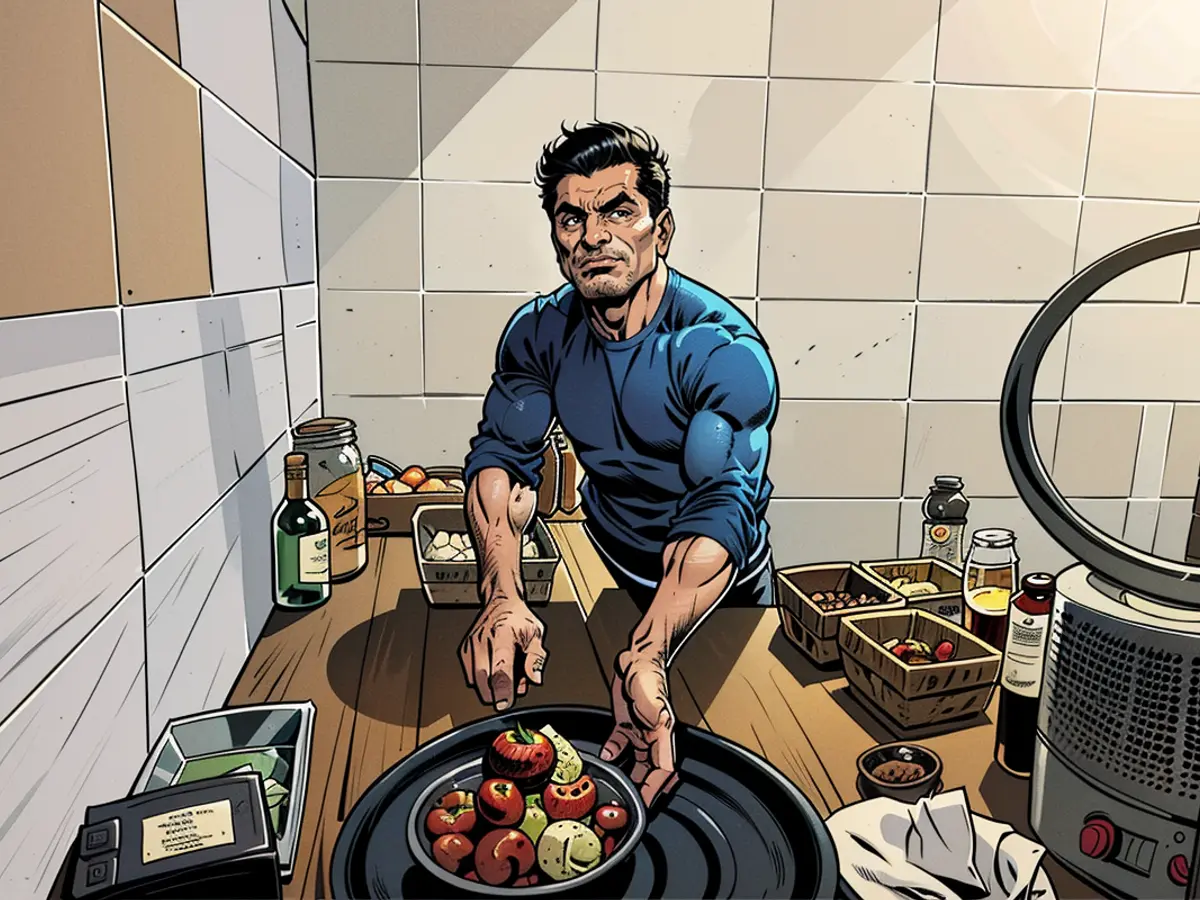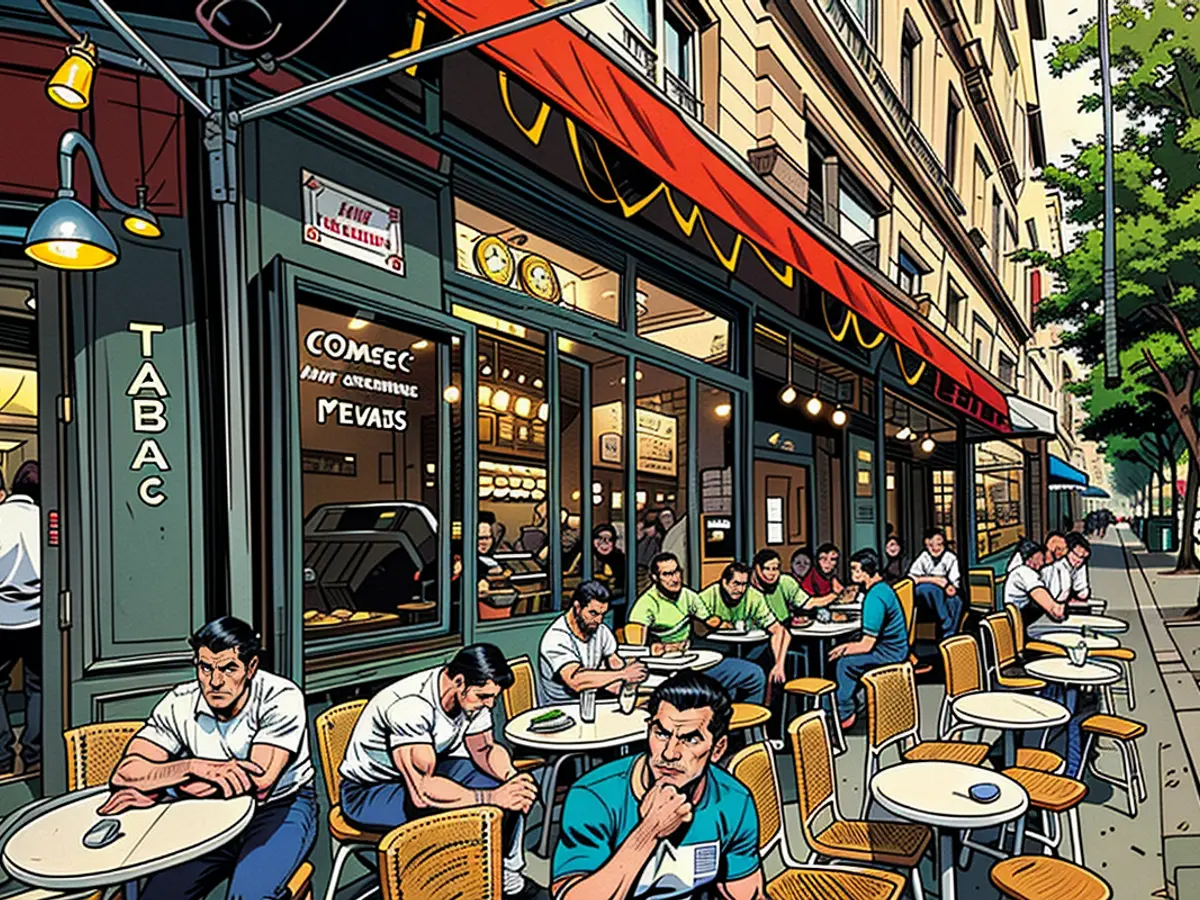Parisian cafés are a cherished part of French culture. Here’s why they might be in trouble
It’s a quintessentially French experience - regulars ordering the wines of the day alongside cheese and charcuterie - but one only made possible by one of the most divisive issues in the country right now: immigration.
At Le Pinardier, those food orders from the sunny terrace quickly end up 70 feet away, in the kitchen, in the hands of 24-year-old chef, Sazal Saha.
Originally from the city of Kuhlna in Bangladesh, Saha is in his fifth year at Le Pinardier after training in catering for two years at the Joliet-Curie School in northern of France.
He’s typically the only person working in the kitchen, which means he does everything: buying the produce, preparing ingredients, cooking, washing the dishes and cleaning.
“Managing the kitchen is not easy when you’re working alone,” Saha told CNN. “It’s so complicated, sometimes I get tired, but I’m used to it,” he said with a smile.
“When I first moved to France, I didn’t know anything about cheese, but I know almost everything about them now,” he said.
One key reason behind Saha’s decision to become a cook in the French capital is because he saw the huge demand from the industry.
A job French people don’t want?

Across France and especially in Paris, hospitality is one of the industries that is most heavily reliant on immigrant workers.
Roughly 25% of the cooks in France are immigrants from outside of the European Union, the then French Labor Minister Olivier Dussopt told Europe 1 radio at the beginning of 2024.
Half of the 86,000-plus chefs in the French capital are immigrants, according to data published by the French National Institute of Statistic and Economic Studies in 2022. They’re the main force supporting the gastronomic landscape of the French capital, feeding and delighting tourists from across the globe.
“Most of the people working in kitchens [in Paris] are either from Bangladesh or Sri Lanka,” said Florian Mousson, owner of Le Pinardier.
Born and raised in a family of generations of restaurant owners in the southern city of Marseille, Mousson believes that his business would not survive without immigrant workers.
Yet, in this month’s French presidential election, which enters a second round vote this weekend, anti-immigration sentiment is seen as one of the factors driving the popularity of far-right party Rassemblement National (National Rally).
In Paris, kitchen workers are mostly originally from South Asia, like Saha. In Mousson’s hometown Marseille and many places in the south of France, restaurants and bars rely on immigrants from the Comoros, a former French colony in the Indian Ocean.
“It’s a tough job. You work standing up, you work evenings and weekends, you put in long hours, and it’s very hot in the kitchen. Often in Paris, the kitchens are very small, so it’s a very strenuous job,” Mousson said.
“There are fewer and fewer French people who are willing to do this job,” he added.
He hired Saha shortly after he opened Le Pinardier in 2019, making contact through a website called Leboncoin, the French version of Craigslist. Mousson says that he’s not only a good cook, but a tough worker and – more importantly – a team player.
Some might argue that restaurant owners prefer to hire immigrants because they cost less, but for Mousson that is not the case.
“I don’t care if my cook is French or a foreigner. But when you put out an ad looking for a chef, for every eight or nine foreign CVs you receive, you get one French CV, so even statistically speaking you’re more likely to hire a foreigner,” he said.
Saha earns a good salary due to the long hours he has to work. Mousson says that it’s not low salaries that dictate who works in the kitchen; it’s whether the person has the sticking power for such a demanding position.
Mousson’s first chef was French. But she resigned after only three days because she wanted a job where she can solely focus on cooking and not do the rest of the job – cleaning the kitchen, cleaning dishes and all the rest.
“For a small business like us, we cannot afford to hire multiple people in the kitchen,” Mousson said.
‘I’m a little worried’

Saha likes Paris. Over the past five years, cooking for Parisians and tourists has allowed him to buy an apartment in a suburb and make a living in the French capital. But now the looming possibility of the far right coming to power is keeping him up at night.
“I am a little worried. I believe their decision is not correct,” he said, referring to the immigration policies and rhetoric he saw on TV the weekend before.
National Rally won a record 33.15% of the vote, leading the race following the first round of French parliamentary elections on June 30, according to data published by the French Interior Ministry.
While it remains to be seen if the party can capture an absolute majority in the French National Assembly, it will almost certainly become the biggest force in the new parliament.
Running on a “France first” agenda, National Rally is calling for much stricter control on immigration, both legal and illegal. It also wants to give French citizens preferential treatment in the social welfare system.
“We are here, we are not doing bad things, we are working here, we are paying taxes, we are paying everything like all French people,” Saha said.
“Why are they making decisions that are so hard on immigration? I don’t understand.”
But this doesn’t stop him from looking forwards to his future life in France, a country that he loves.
“I am proud to work in a French restaurant. I like it. I love it,” he said.
After hearing about the potential increase in anti-immigration sentiment in the French presidential election, Saha expressed concerns about his future in France. Despite this, he remains proud to work in a French restaurant and continues to enhance his knowledge of French cheeses. In his free time, Saha enjoys exploring France and planning future travels, taking advantage of the freedom to move around the country that his job in Paris provides.
Amidst the divisive immigration discussion in France, the hospitality industry relies heavily on immigrant workers like Saha to maintain the gastronomic scene of Paris. With the high demand for kitchen staff in the city, Saha sees numerous job opportunities for immigrants looking to work in the French culinary scene. As he continues to grow his career as a chef, Saha hopes to use his experiences to share the richness and diversity of French cuisine through his travel adventures.
Read also:
- Fear of escalation in the Middle East: US Secretary of State Blinken travels to the region again
- Government circles: US Secretary of State Blinken to travel to Middle East again
- Bridging days 2024: How you can double your vacation this year
- Germany has wanderlust: how tour operators and airlines are looking ahead to the next travel year








